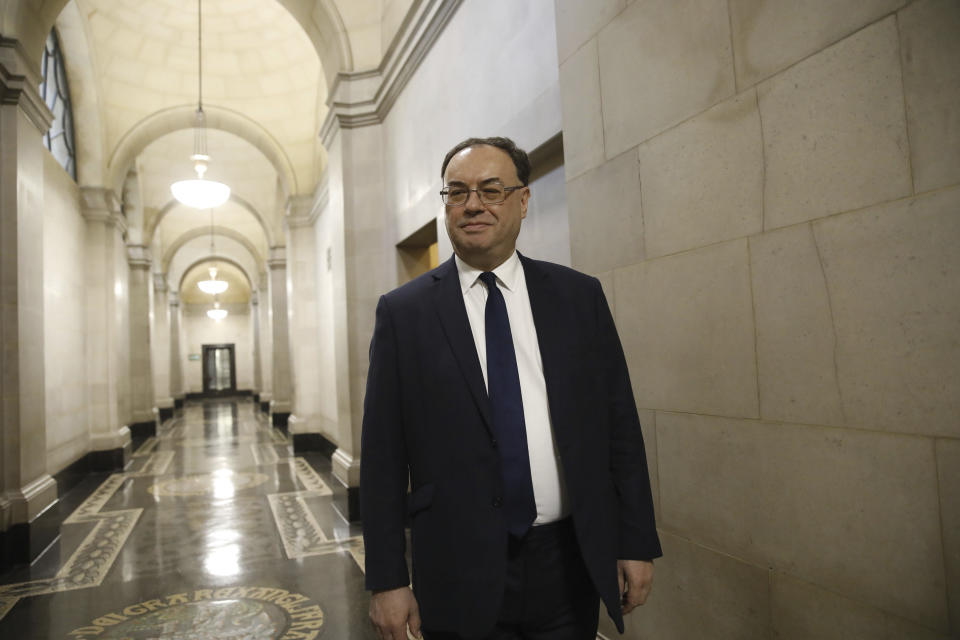Bank of England to pump another £150bn into UK economy

The Bank of England plans to pump another £150bn ($194bn) into the UK’s ailing economy by buying government bonds.
The central bank on Thursday said its Monetary Policy Committee (MPC) had voted to maintain the interest rate at the record low level of 0.1% but expand quantitative easing (QE) — its programme of government bond buying on the secondary market — by £150bn. The Bank of England will maintain a stock of corporate bonds worth £20bn.
All three decisions were voted through unanimous by the 9-person MPC.
The QE expansion takes the size of the Bank’s asset purchase facility to £895bn, covering both government and corporate debt.
READ MORE: Sainsbury's warns 3,500 could lose jobs as it aims to shut 420 Argos stores
“We believe there is value in acting quickly and strongly to support the economy,” Bank of England governor Andrew Bailey said on a call with journalists.
“The one thing we’ve all learned about this period is that the situation can change quickly and dramatically.”
Economists had expected the Bank of England to leave the interest rate unchanged but expand its asset purchase facility by £100bn.
The pound rose sharply against the euro (GBPEUR=X) and dollar (GBPUSD=X) in the wake of the announcement.

The backdrop to the policy decisions was a worsening outlook for the UK economy and a second lockdown in England, which begins on Thursday and is set to last until at least 2 December.
The Bank of England downgraded its forecasts for the UK economy in light of the lockdown, warning that the economy would probably shrink against due to the restrictions.
The Bank of England now expects the economy to contract by 2% in the fourth quarter, compared to a forecast of 5.4% growth made in August.
The downgrade forced the Bank of England to slash its forecast for annual growth. The MPC now expects UK GDP to shrink by 11% this year, compared to a forecast of a 9.5% contraction made in August.
The economy should begin to recover early next year but will not reach pre-pandemic levels until early 2022.
“We’re a long way short of where we were pre-COVID,” Bailey said.
Forecasts for GDP growth next year were downgraded, while expectations for 2022 were upgraded.

The committee warned that the outlook “remains unusually uncertain” due to the pandemic and Brexit. The MPC warned the impact of Brexit would hit the economy at the start of 2021, due to a lack of preparedness among some businesses. The impact is expected to fade by the second quarter of 2021. The Bank of England still assumes the UK will reach a trade deal with the EU.
READ MORE: Bank of England: Brexit will weigh on UK economy 2021
The MPC said it “stands ready to take whatever additional action is necessary” to try and drive up inflation and support the economy.
“We are here to do everything we can to support the people of this country and we will do it,” Bailey said.
The UK economy shrank by almost a fifth during the first lockdown and a recovery that began in early summer was losing steam even before the announcement of a second lockdown. GDP growth slowed to just 2% in August.
WATCH: What are negative interest rates?

 Yahoo Finance
Yahoo Finance 